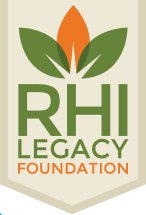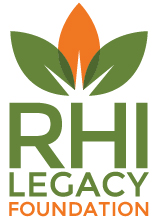In The News
Forum Examines the Opioid Epidemic
SPINDALE—Opioid addiction must be treated like any other disease, and those affected should be treated with compassion. That was the consensus from the opioid addiction forum, held Tuesday morning at Isothermal Community College. Sponsored by the Community Health Council and Rutherford County government, with support from RHI Legacy Foundation, the event was attended by nearly 100 citizens.
Karen Powell, Rutherford-Polk-McDowell Health District director said the opioid epidemic sweeping the region, and the nation, was seen looming on the horizon for years.
“Addiction does not discriminate,” Powell said, noting that it crosses all socio-economic boundaries.
She thanked the participants for attending, and said that working together they can bring about change.
Several at the forum were from Vaya Heath, the managed care organization that oversees mental health and substance abuse services in 23 counties in western North Carolina including Rutherford.
“Thank you all for making opioid addiction a top priority,” said Shelly Foreman of Vaya Health. “I hope you will leave here with the understanding that addiction is like any other chronic health issue.”
United Way Executive Director Suzanne Porter, who helped organize the event, shared statistics on the impact of opioid addiction. In North Carolina, it had an estimated $2 billion impact in 2014. A total of $582 million was in health care costs.
“This of course does not account for the emotional and social costs,” Porter said. “In 2015 there were 998 unintentional opioid overdose deaths in North Carolina.”
This rise in opioid abuse, and deaths, has been explosive. Over the last 15 years deaths from opioid abuse have risen by 900 percent across the nation.
According to Rutherford County Department of Social Services approximately 97 percent of all foster care cases are related in some way to addiction, many of these opioid addiction.
Porter said the statistics tell a large part of the story, but not the feelings, or the emotions.
“We have to be honest about how it opioids make those who are addicted, feel. We have to be honest about why they turn to opioids. We must try to understand why they are attracted to these drugs,” she said.
Porter encouraged the forum participants to employ hope and compassion as they work to combat opioid addiction.
Katie Gotz of Meridian Health spoke of the role of stress when it comes to addiction. The greater the amount of trauma one experiences can increase the potential for drug addiction. Shes spoke of the “resiliency zone,” describing the state of mind that most people are in. Trauma can knock a person out of that zone.
Gotz spoke of the need for resiliency skills especially for those addicted or highly at risk of addiction.
Paula Bynnom is clinical director of adult services, at Family Preservation Services (the primary provider of mental health and substance abuse services for Rutherford County, contracted through Via Health).
“In talking about opioid addiction, people say it is all about choice and will power. I say no, it is not,” Bynnom stated. “Opioids can rewire your brain, and affect brain chemistry.”
Bynnom said it is not uncommon for an addicted person to go through rehabilitation therapy more than once.
“We don’t know when that ‘aha’ moment will come, when the pain of addiction outweighs the pleasure,” she said.
Unless there is rehabilitation, Bynnom stated, “We will continue to have more and more death.”
She reviewed the various treatment options that are now available for Rutherford County residents.
“We come with a spirit of hope, and nonjudgmental attitudes,” she said. “It doesn’t matter where you come from or what you have been through. It matters where you are willing to go today.”
Matt Gannon, of Vaya Health, shared a personal story of addiction that related to his father. Gannon recalled that his father, who is now deceased, experienced opioid addiction after being prescribed a pain medication.
“My hope is that you will think of the opioid crisis as something that doesn’t just affect ‘other people,’” Gannon stated. “Think also of people like my dad, whose addiction began with a pain medication prescription.”
Following the speakers, forum participants held table discussions led by a facilitator. Those seated at each of the ten tables examined questions relating to treatment options, barriers to treatment, how the public is informed about treatment, and community attitudes toward those who struggle with addiction.
Passion in addressing the matter, and compassion toward those who battle opioid addiction are needed, forum participants said, along with conversations, collaboration, and second chances.
Other needs noted were: better education about the potential harm that comes with opioids, more knowledge about treatment options, more funding, and a local comprehensive rehabilitation center in Rutherford County.
County Manager Steve Garrison closed the forum, thanking the participants for their attendance, and informed discussions.
“The Community Health Council will collect and review the data from today,” Garrison said. “There is already some low-hanging fruit that all of us can work on.”
He said the council will report back to the community the forum findings, and examine a path forward.
“The future is what we dare to make it,” he added.


